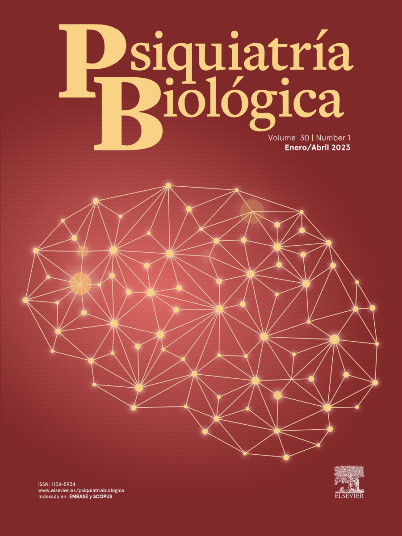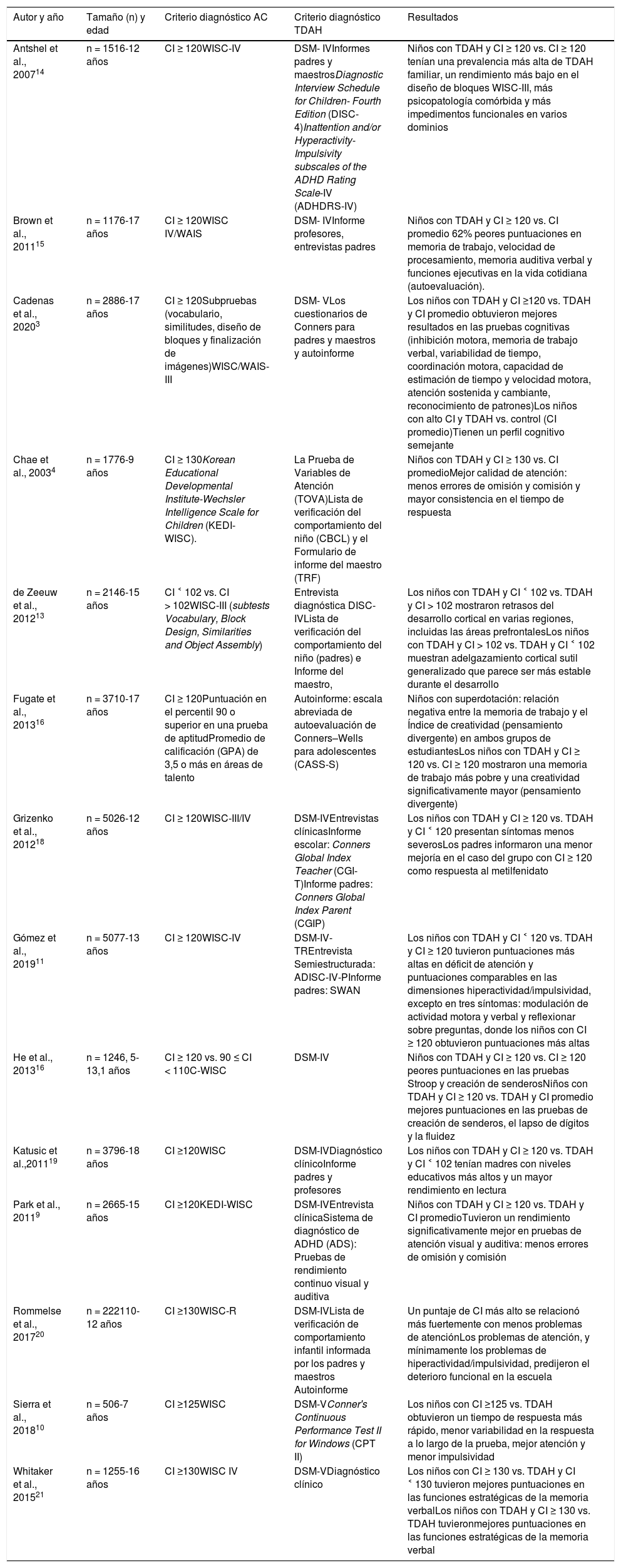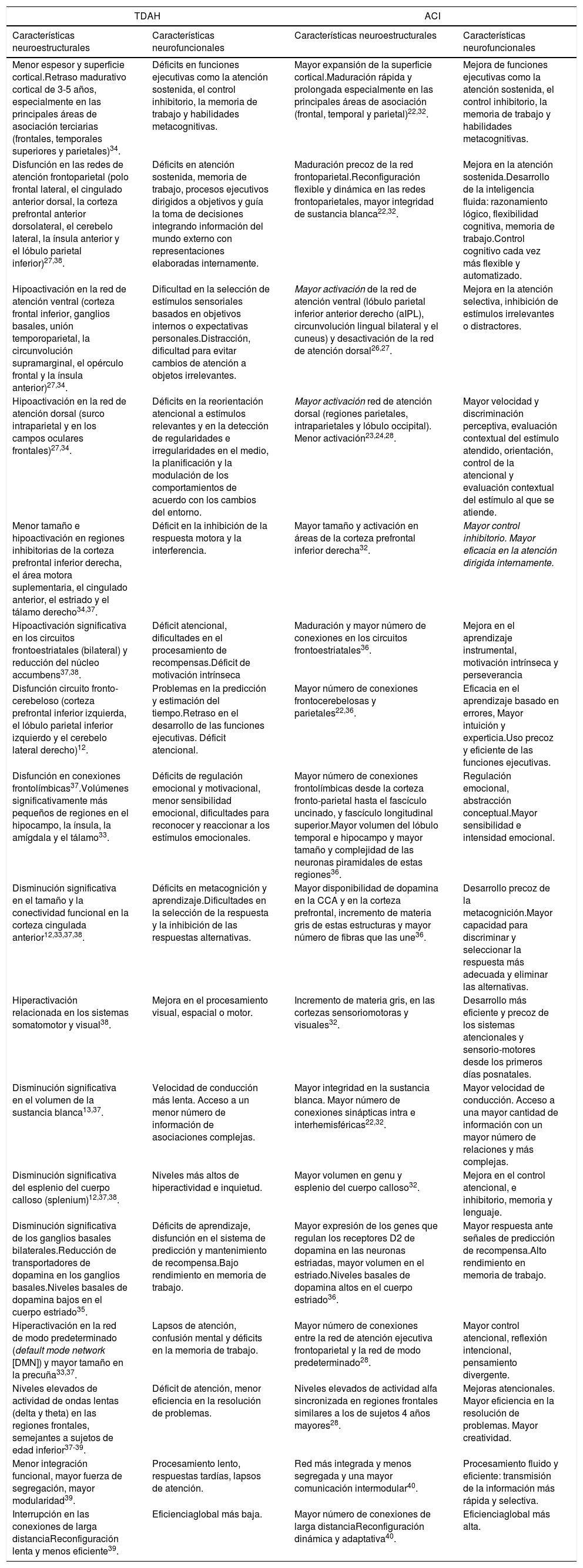El número de niños diagnosticados con trastorno por déficit de atención con hiperactividad (TDAH) en la alta capacidad intelectual (ACI) es superior al de la población normotípica. Este estudio pretendió analizar las evidencias empíricas que muestran la coexistencia, o no, de ambos diagnósticos. Los resultados hallados no permitieron afirmar que el TDAH es una construcción válida en el contexto de la ACI. Cuando se estudia desde una perspectiva psicobiológica se encuentra que los niños con ACI pueden presentar síntomas clínicos de TDAH en ausencia de los marcadores neuronales específicos de este trastorno, es más, parecen seguir una trayectoria de desarrollo diferente. Se sugiere la necesidad de utilizar enfoques neurocientíficos y objetivables que ayuden a comprender la ACI y el TDAH dentro del contexto del neurodesarrollo y como consecuencia de un órgano integrado y multifacético que es más que un simple reflejo de sus partes separadas o la suma de síntomas específicos.
The number of children diagnosed with Attention Deficit Hyperactivity Disorder (ADHD) in giftedness is higher than that of the normotypic population. This study aimed to analyze the empirical evidence that shows the coexistence, or not, of both diagnoses. The results found did not allow to affirm that ADHD is a valid construction in the context of the giftedness. When studied from a psychobiological perspective it is found that gifted children can present clinical symptoms of ADHD in the absence of specific neuronal markers to this disorder, indeed they seem to follow an different development trajectory. It suggests the need to use neuroscientific and objective approaches that help to understand giftedness and ADHD within the context of neurodevelopment and as a consequence of an integrated and multifaceted organ that is more than a simple reflection of its separate parts or the sum of specific symptoms.








